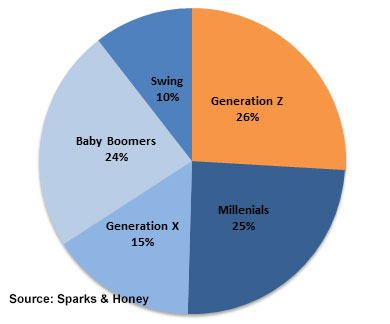When you need a little inspiration or something to challenge the way you think, a great place to spend some time is on TED.com. TED Talks are short speeches given by thought leaders, influencers, entertainers, business executives, academics, political leaders, authors, etc., with the responsibility of delivering “Ideas Worth Sharing.” As a leader, viewing talks from psychologists, business leaders, and authors can be very important as new research shows unique insights into the way people work. What motivates us? What are our common needs? How can I be the best version of myself today?
The One Thing You Should Do Every Day
Today, Harvard Business Review posted an article on the 3 Things Managers Should Do Every Day. The article mentions how overwhelmed new managers are to the key responsibilities of their jobs and often feel like they can’t do it all. They find themselves putting out fires and problem solving so often that they don’t have time to take more strategic and proactive approaches to their team.
Consciously Avoiding Unconscious Bias in Performance Reviews
As the end of the year draws near, many of us are engaged in the daunting task of creating performance appraisals for our team members. Few people enjoy filling out performance reviews, and even more find the process unproductive. Yet, in most organizations, it is a required management activity and it determines which employees are penalized or rewarded for their work. Raises and promotions are often tied to performance reviews, so it’s important managers are committed to creating an accurate portrayal of their team member’s work.
Don’t Mistake High Performers for High Potentials
One of the most common mistakes made in succession planning is to confuse high performance with high potential. It’s easy to spot a high performer. They are the team members you rely on for last minute sales or to make a difficult deadline. They are your go-to team members. They are the team members you actively work to retain and would even counter-offer if they considered leaving the organization. Because they’re so easy to identify, and we can’t fathom losing them to a competitor, we often push them towards a management route.
Leading a Cohesive Team Past Groupthink
So many examples of poor decisions can be traced back to groupthink. From the bombing of Pearl Harbor to the Bay of Pigs and the Challenger disaster—each of those infamous moments in history could have been avoided if special attention was devoted to preventing groupthink. Much of the research on the topic was developed by Irving Janis, who defined groupthink as “…a mode of thinking that people engage in when they are deeply involved in a cohesive in-group, when the members’ striving for unanimity overrides their motivation to realistically appraise alternative courses of action.”
Here Comes Gen Z
Just when you got used to leading millennials, the game is getting ready to change again. Gen Z (currently comprised of 3 to 20 year olds) may seem like “just kids” to you now, but they’ll be applying for openings on your team before you know it. Gen Z now accounts for about 7% of the workplace and by 2019 there will be 30 million employed members of Gen Z. Companies are already strategizing how to attract this new talent pool, so you need to start thinking about how you’ll lead this unique demographic.






